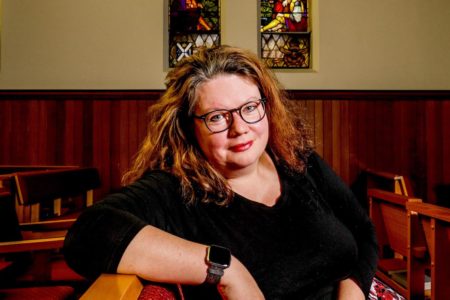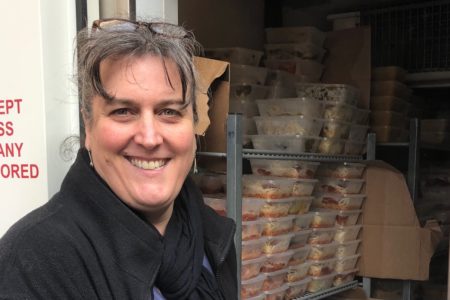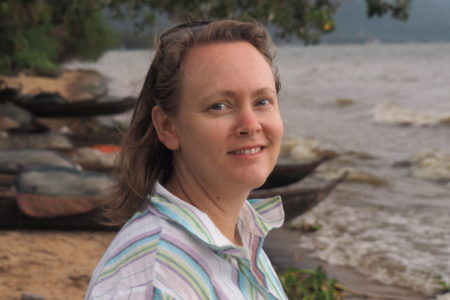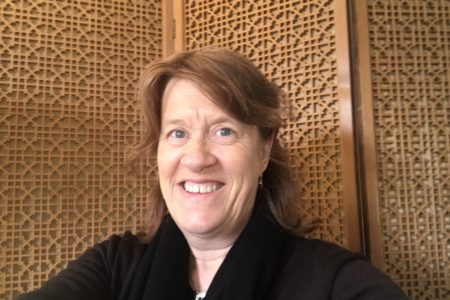In the second part of this ongoing series, we speak with Rev Cameron McAdam who is minister at The Village Church, Mt Eliza, on Victoria’s Mornington Peninsula.
How is your part of the UCA or ministry being affected by the COVID-19 crisis?
As with all other UCA congregations, the Village Church can no longer meet for Sunday worship or other activities. Face-to-face pastoral care is clearly almost impossible now and hospital or aged care visiting likewise. Our church council has had to make some very challenging decisions over the last few weeks and things have, and continue to, change rapidly.
How have you responded?
Our Sunday church was live streamed on March 23 for the first time. We looked at a variety of options but went with Facebook Live, largely because it was accessible, for both Facebook members and those who are not.
Our main aim has been to keep bringing our community together, and so we chose live (rather than pre-recorded) so people felt part of something happening right now.
I am fortunate enough to have a team to work with who helped me plan and were present to make it happen. They have all been fantastic.
The community engagement was incredible. We went live 10 minutes before the beginning of the service. As people joined the live stream we welcomed them to church. It was a brilliant idea, it needs further work, but people loved being welcomed. They were messaging back. It created a terrific dialogue dynamic.
Our church council, Lent groups, and even some social/friendship groups are having a go at Zoom. This is working well, and enjoyable to see people engaging in fresh ways.
What do you most want to preserve or focus on during this period?
Without question, we are trying to keep our community connected to each other across this time, largely through our worship, comms and pastoral care, urgently transitioning to new forms of communication and care.
We have a beautiful, gracious and supportive community who have been encouraging and have constantly told us how much they appreciate the work we are doing to ensure we remain connected. We had so many supportive messages and ideas shared from last Sunday.
What has been most challenging?
Although intergenerational in makeup, our congregation has lots of older members and it has been a challenge ensuring they are OK, have supports in place, and can access the livestream or other church information. Some just have no technological experience, and with some we have resorted to post, or we have tried to do some tutorials on the fly.
Do you have any ideas or advice from your experience to share with others?
For our Sunday service, we chose to use a live stream on our Facebook page rather than a closed group, largely for access, but the engagement of the livestream was way beyond, hundreds more, than the number that would attend church. This was an unexpected delight.
We have purposefully done something fairly simple with our worship live streaming, to ensure if restrictions increase or people become unwell we can sustain it, perhaps even filmed by one person in their loungeroom. We have tried to lower expectations. I think it’s important to ensure what you do is sustainable across a long period of time. It’s no good getting lots of gear and making it fancy, only to not be able to use that gear or have to massively simplify. Help people understand that things are different now.
We have already noticed that some practices may become the new norm because they’re more efficient or are enjoyable. When patterns and rhythms change, it creates anxiety, but you can also see things differently. Zoom has been a hit with some of our groups and meetings. It’s been way better than expected.
Some things, like ensuring everyone’s details are correct in our system have been put off and put off, but this has created the catalyst to make it happen. We have worked on our contact information, email systems, etc.
In this time of challenge and distress, do you have a personal message or faith reflection that you would like to share?
Our community is rightly focusing on the health, physical and economic implications of this virus on our community, but what about the spiritual?
What is the spirituality behind people’s inability to share in a supermarket, or the great sacrifice people make in healthcare, or the dedication of teachers developing new ways of teaching? We are seeing the best and worst of our community. The stories we read in the church across Lent have helped us focus our hearts and minds on what is vital at this time, on the compassion, care and justice of Jesus.
Read the first of our Coping with COVID-19 series here.





